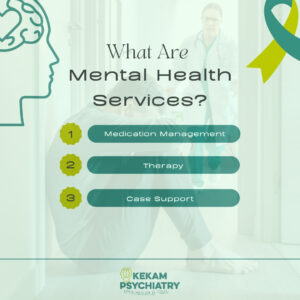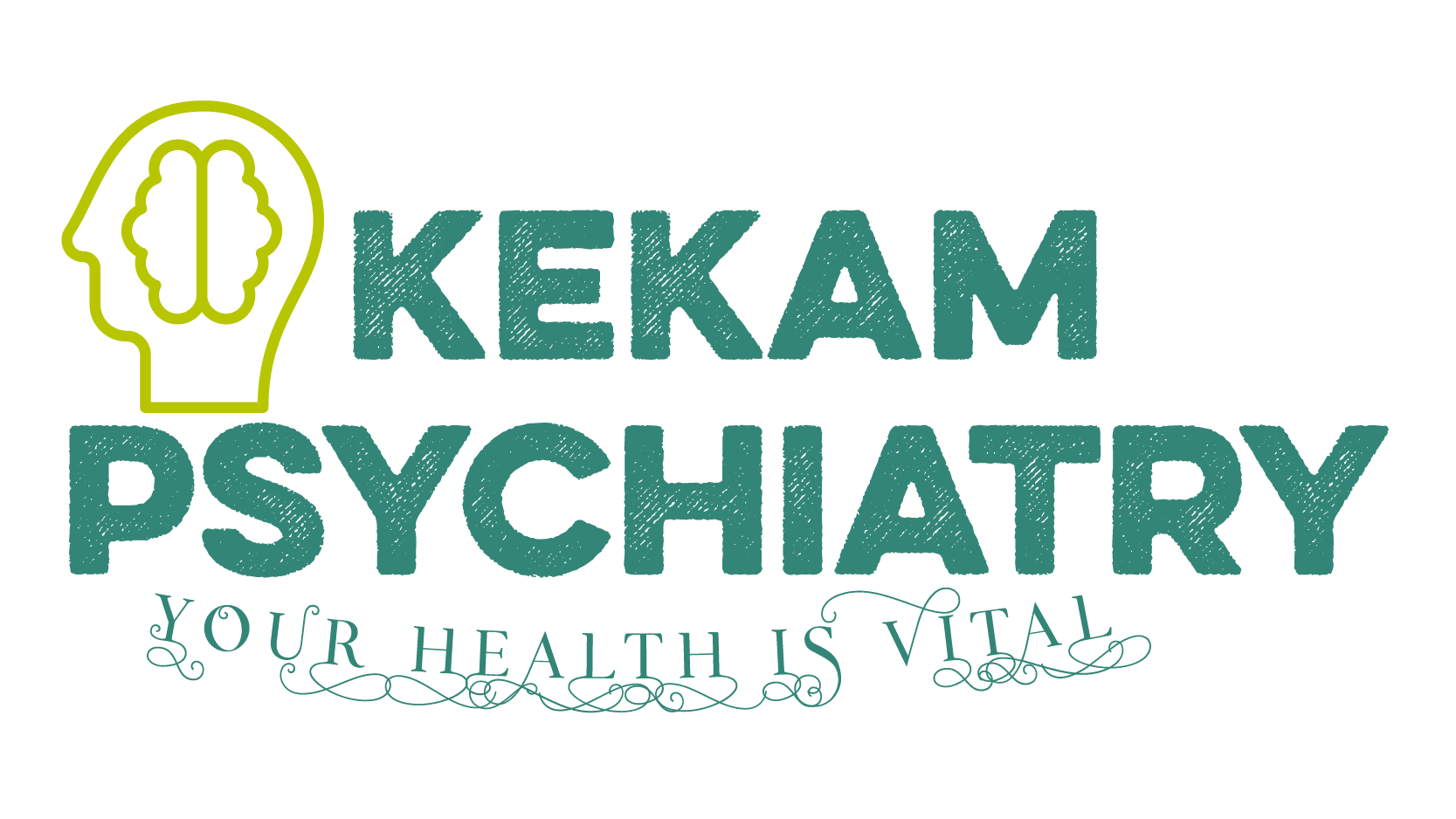Getting help for mental health has become more crucial as more people look for support for their emotional, psychological, and behavioral well-being. The main parts of mental health care involve managing medications, going to therapy, and getting case support. Knowing how these services work—on their own and together—can help people make smart choices about their mental health care.
This guide explains each of these essential mental health services, highlights their benefits and provides practical steps for accessing support.
What Are Mental Health Services?
Mental health services offer support for individuals dealing with mental health issues such as anxiety, depression, bipolar disorder, and other emotional or behavioral challenges. Services are typically provided by mental health professionals, including psychiatrists, psychologists, therapists, and social workers.

The three essential components of mental health care are:
- Medication Management
- Therapy
- Case Support
Each service addresses different aspects of mental well-being, but they often work together as part of a comprehensive care plan.
1. Medication Management
Medication management involves the oversight and regulation of psychiatric medications to ensure they are safe, effective, and appropriate for the individual’s specific needs. This service is typically provided by a psychiatrist, psychiatric nurse practitioner, or another licensed medical professional with expertise in mental health medications.
How Does It Work?
The process of medication management includes:
- Initial Evaluation: A mental health professional assesses the individual’s symptoms, health history, and lifestyle.
- Prescription and Dosage: Based on the evaluation, the provider prescribes an appropriate medication and dosage.
- Monitoring and Adjustment: The provider schedules follow-up appointments to monitor the medication’s effects, address side effects, and make any necessary adjustments.
- Education and Guidance: Patients are informed about how their medications work, possible side effects, and what to do if issues arise.
2. Therapy
Therapy, often known as talk therapy or counseling, entails organized interactions with a qualified mental health practitioner. The purpose of therapy is to help people understand their ideas, feelings, and actions while also giving practical methods for dealing with life’s obstacles.
Types of Therapy
There are different forms of therapy, each with its own approach and purpose:
- Cognitive Behavioral Therapy (CBT): Focuses on identifying and changing negative thinking patterns and behaviors.
- Dialectical Behavior Therapy (DBT): Helps individuals build emotional regulation skills, improve relationships, and cope with distress.
- Psychodynamic Therapy: Explores past experiences and unconscious patterns that influence present behavior.
- Family and Couples Therapy: Involves multiple participants to address relationship dynamics and improve communication.
3. Case Support
Case support, also called case management, connects individuals with the resources and services they need to maintain mental health and well-being. It involves a team-based approach where mental health professionals, social workers, and care coordinators assist individuals in accessing care, navigating complex systems, and receiving essential support.
What Does a Case Support Worker Do?
Case support workers act as liaisons between clients and mental health service providers, community resources, and government programs. Their responsibilities often include:
- Needs Assessment: Identifying the person’s goals and precise wishes for mental health care, employment, housing, and other necessities.
- Service Coordination: Helping clients access mental health care, financial aid, housing, and other social services.
- Advocacy and Support: Advocating for clients’ rights and ensuring they receive fair treatment and appropriate care.
- Crisis Intervention: Providing emergency help throughout moments of crisis, which includes the suicidal mind or surprising intellectual fitness deterioration.
How to Access Mental Health Services
If you or a loved one is ready to seek mental health support, here’s how to get started:
- Talk to a Primary Care Provider: A primary care doctor can provide referrals to psychiatrists, therapists, or community support services.
- Use Employee Assistance Programs (EAPs): Some employers offer confidential mental health resources for employees.
- Check Your Health Insurance Plan: Insurance providers often have a list of in-network mental health providers.
- Contact a Mental Health Clinic: Reach out to local community clinics, mental health centers, or telehealth platforms.
- Use Online Resources: Directories like Psychology Today list licensed therapists, psychiatrists, and mental health clinics.
Overcoming Barriers to Mental Health Care
Despite growing awareness of mental health, people still face challenges when trying to access care. Common barriers include:
- Stigma: Many people feel ashamed or afraid to seek help due to societal stigma.
- Cost of Services: Therapy and medication can be expensive, but options like sliding-scale fees and financial aid are available.
- Limited Availability: Accessing providers in rural areas or areas with high demand can be difficult.
- Lack of Awareness: Some people may not know how to begin looking for mental health care.
Fortunately, telehealth services, virtual therapy, and expanded case support are improving access to mental health care.
Bottom Line
Medication addresses the biological components of mental health, therapy tackles the psychological and emotional aspects, and case management assists individuals in overcoming barriers to care. When integrated, these treatments form a complete, person-centered approach to mental health.
If you or someone you know is coping with mental health concerns, seeking help is an important first step. Individuals can enhance their well-being significantly with good counsel and access to appropriate mental health care.

